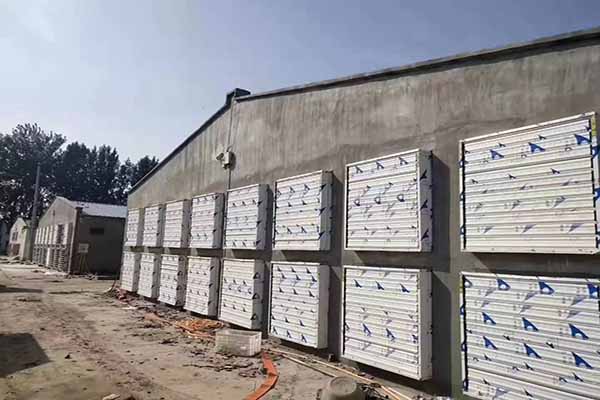How to Build a Chicken House for 30,000 Chickens in Ghana: A Comprehensive Guide
Designing the Chicken House
Building a chicken house for 30,000 chickens in Ghana requires careful planning and consideration of several factors. Below are key aspects to consider for an efficient and effective design.
- Site Selection: Choose a location that is easily accessible for transportation of feed, equipment, and eggs. Ensure the site is not prone to flooding and has good ventilation.
- Building Size: The house should be spacious enough to accommodate the chickens comfortably. For 30,000 chickens, a recommended size is around 50,000 square feet.
- Layout: Design the house with clear pathways for chickens to move around freely. Include separate areas for feeding, resting, and egg collection.
- Ventilation: Proper ventilation is crucial for the health of the chickens. Install ventilation systems that provide a consistent flow of fresh air.
- Climate Control: Ghana has a tropical climate, so ensure the house is designed to regulate temperature and humidity levels for optimal chicken welfare.
- Security: Implement security measures to protect the chickens from predators and theft.
Structural Considerations
When constructing the chicken house, consider the following structural elements:
- Materials: Use durable materials that can withstand the Ghanaian climate, such as concrete blocks, iron sheets, and reinforced steel.
- Roofing: A sturdy, waterproof roof is essential to protect the chickens from rain and harsh sunlight.
- Foundation: A strong foundation will ensure the house’s stability and longevity.
- Interior: Use high-quality, easily cleanable materials for the interior walls and floors to maintain a hygienic environment.
Equipment and Technology
Invest in the right equipment to enhance the efficiency and success of your chicken house:
- Feeding System: Automatic feeding systems can save time and ensure all chickens receive the necessary nutrition.
- Watering System: A reliable water supply is crucial for the chickens’ health. Consider automated watering systems.
- Monitoring Systems: Install temperature and humidity sensors to monitor the environment and make adjustments as needed.
Conclusion
Building a chicken house for 30,000 chickens in Ghana is a significant investment. By following these guidelines, you can create a sustainable and profitable operation. For more detailed information and free design services, please feel free to leave a comment below or contact us directly at livi-mechanical.com.





